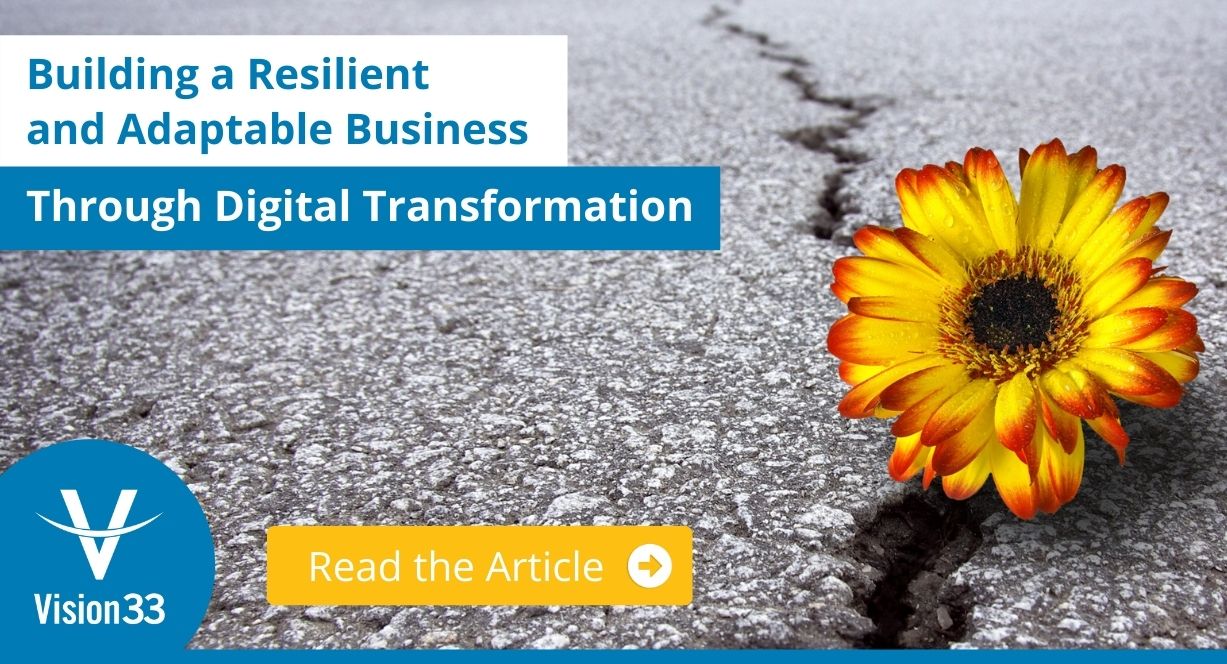5 Essential Criteria for Choosing the Right Cloud ERP Partner
SAP Business OneYour relationship shouldn’t end after implementation—that’s just the beginning of your journey into...

June 17, 2021
Blog > Building a Resilient and Adaptable Business Through Digital Transformation
IDC, the premier global market intelligence firm, recently published an InfoBrief sponsored by SAP Canada that examined Canadian businesses undergoing digital transformations. The InfoBrief found that 95% of surveyed organizations have a digital transformation strategy and want to become “intelligent enterprises.”
Digital transformation is embracing technology to run your business better. Companies achieve it by implementing digital technologies to create new – or modify existing – processes, culture, and customer experiences to meet changing business and market requirements.
A business can become an intelligent enterprise (IE) by adopting a formal, well-integrated digital transformation strategy. IE drives automation and innovation, unlocks new growth areas, and delivers exceptional experiences for customers and employees.
Digital transformation and IE help businesses become more resilient and adaptable to changing conditions.
Like all journeys, a digital transformation journey begins with a single step, such as identifying one pain point and implementing technology to address it. One small change can have a significant, positive impact on a business – and one small change at a time makes digital transformation less overwhelming.
IDC developed the “Intelligent Enterprise Overall Progress Scale” that businesses move through in their journeys:
Nearly 80% of IE leaders are using their digital transformation strategies to incrementally but continuously improve their technology. Incremental steps give businesses time to observe changes, determine what’s working and what isn’t, course correct, and stay agile.
IDC found that Canadian businesses are investing in data management, analytics, employee productivity and collaboration tools, and cloud services for secure data that’s available anytime, anywhere. Such technologies propel businesses toward IE.
Minor technology changes have other positive outcomes, too, like a personalized experience for customers and employees. Because while revenue and profit remain top priorities for businesses across the IE scale, customer and employee experience are in the top five metrics used to measure overall performance.
For example, employee engagement tools that enable remote work increase collaboration, connection, positive morale, and talent retention. And while technology can improve financial performance, it can also help businesses earn trust and loyalty from employees and customers.
According to IDC, businesses need a digital sponsor to drive the vision and support the planning and execution of a digital transformation strategy. Common digital sponsors include high-ranking employees, but the number one trait a digital sponsor needs is the ability to drive cultural change while listening to employee and even customer feedback.
Start with one pain point – the area that eats up the most time and causes the most frustration. The solution could be as simple as an integration solution to connect business applications or a system that eliminates spreadsheets and manual data entry.
To learn more about digital transformation, IE, and the essential attributes of IE leaders, download IDC’s InfoBrief below.
Subscribe to our newsletter to receive our latest blog posts, case studies and ERP news delivered straight to your inbox.
Your relationship shouldn’t end after implementation—that’s just the beginning of your journey into...
[Updated] Implementation is just the beginning of your SAP Business One journey. An award-winning...
As the whiskey industry grows, distillers need more advanced cask management, and Brutos is the...
Recieve our latest blog posts, case studies, and ERP news
delivered straight to your inbox.